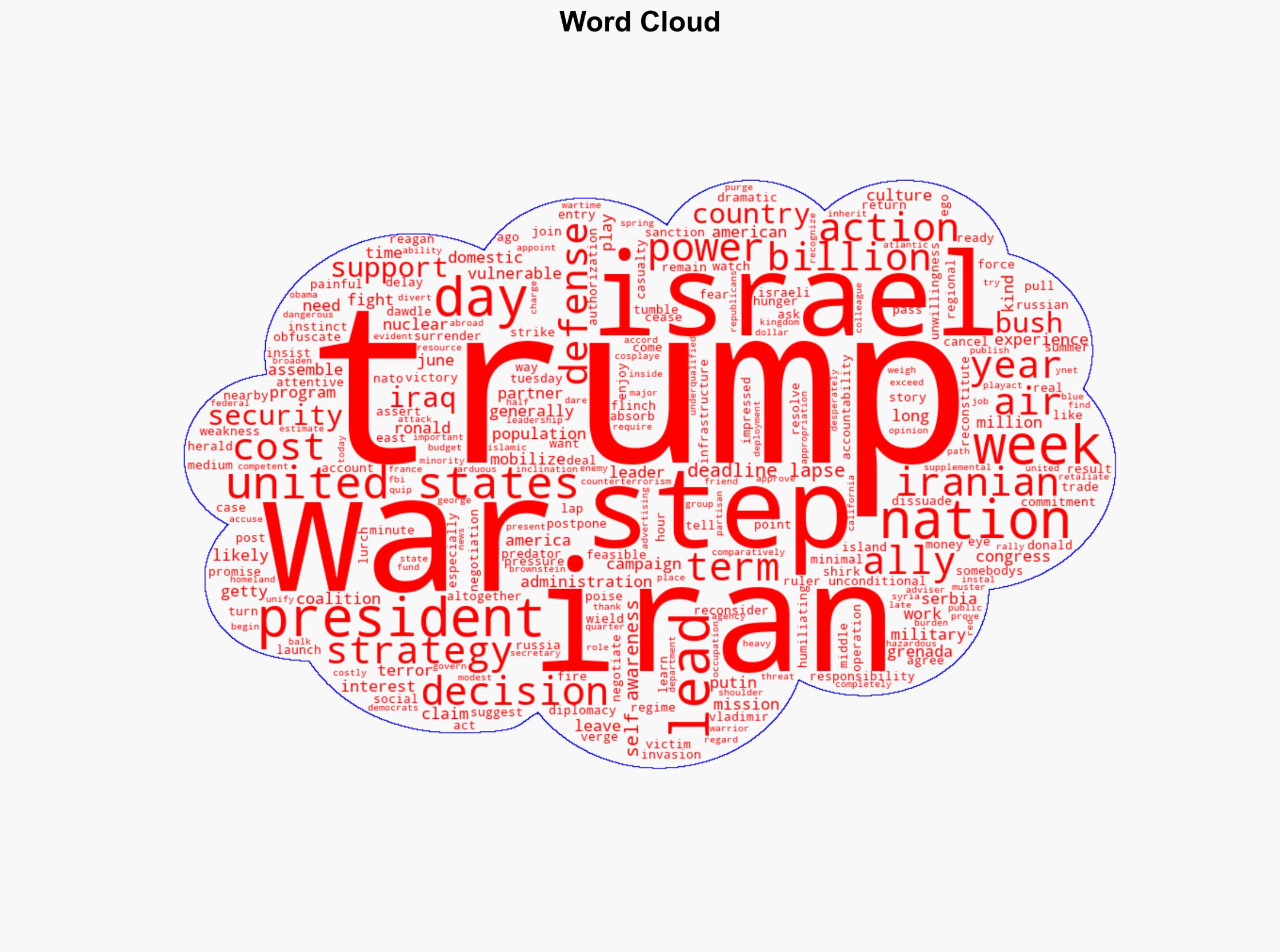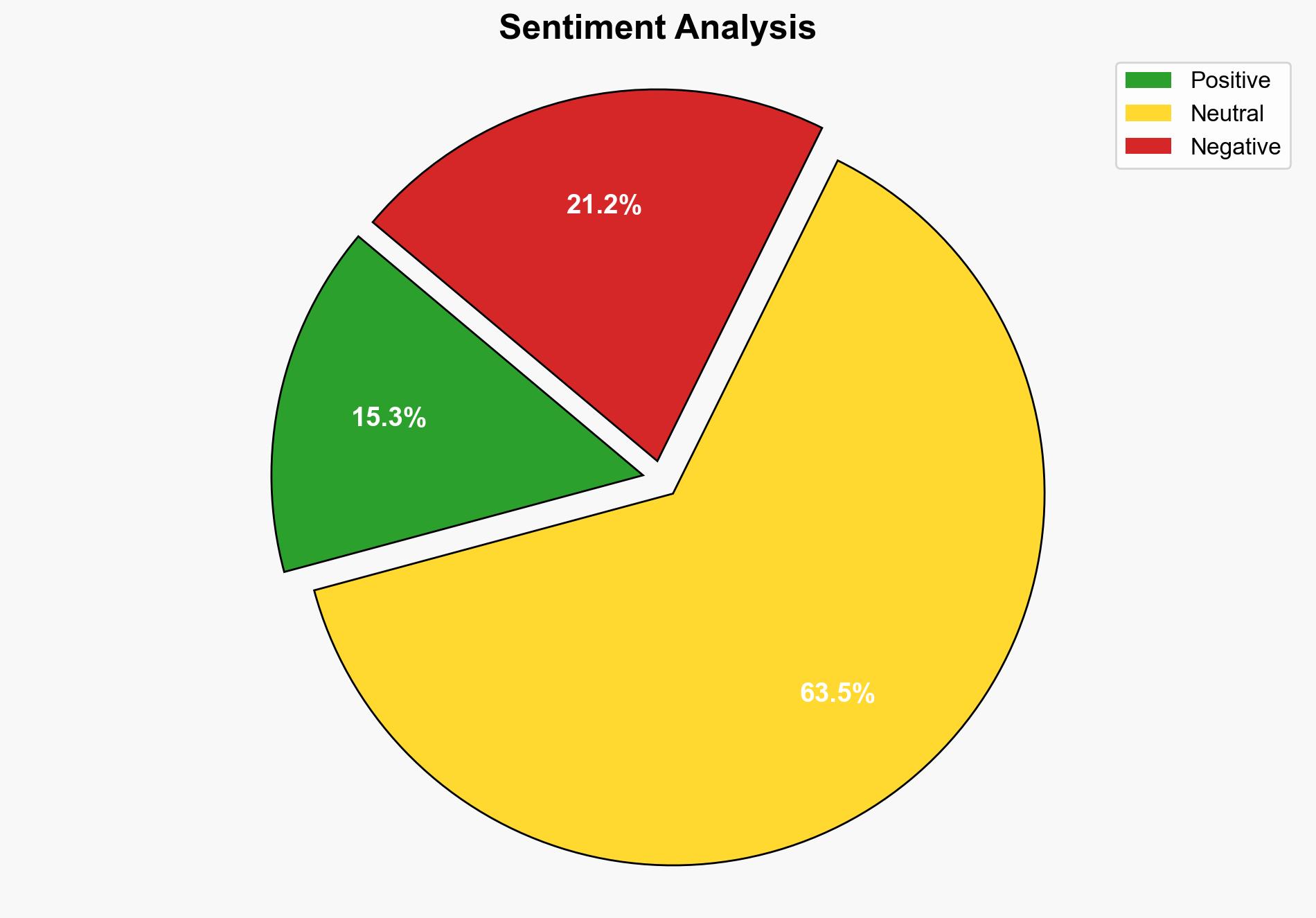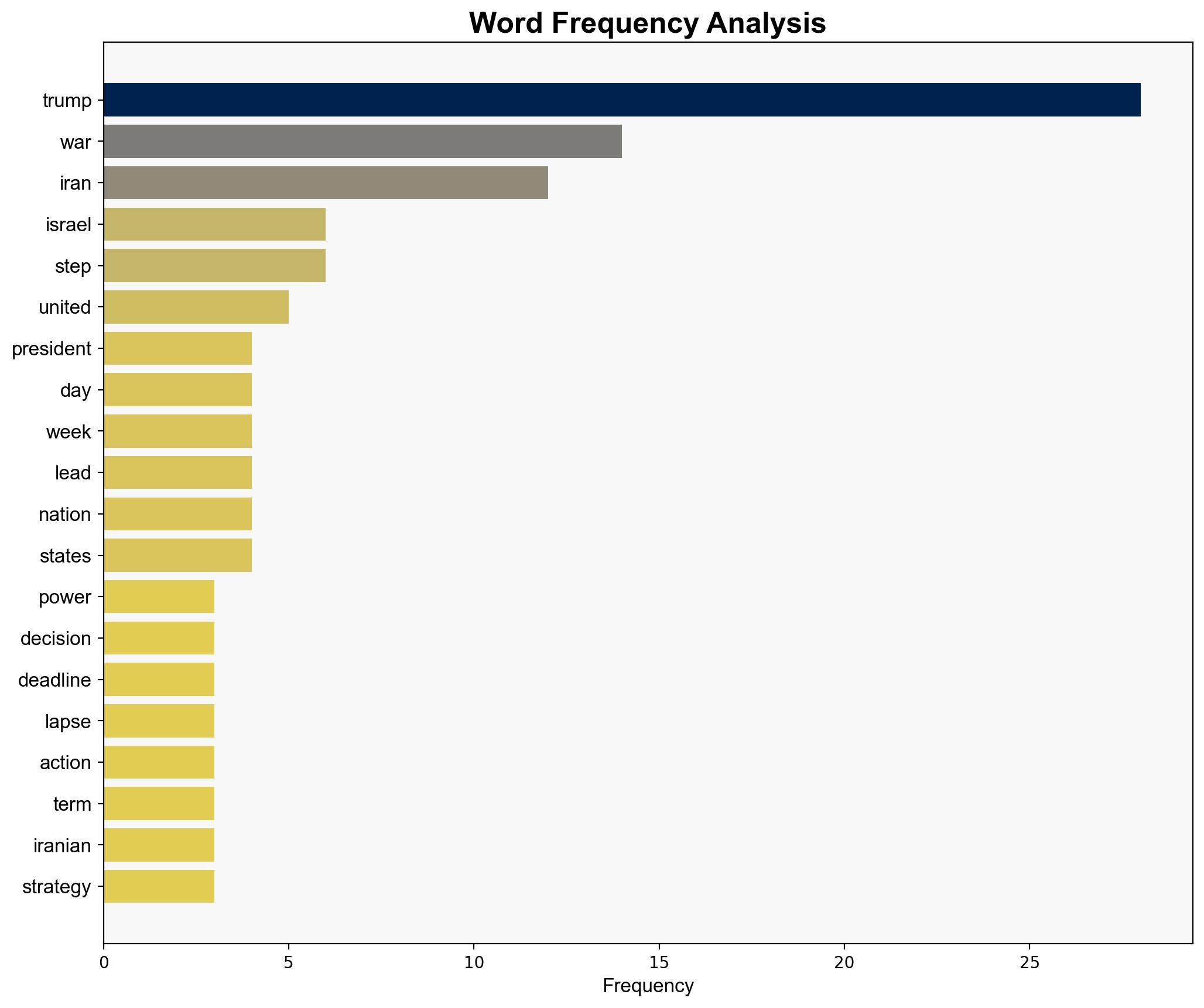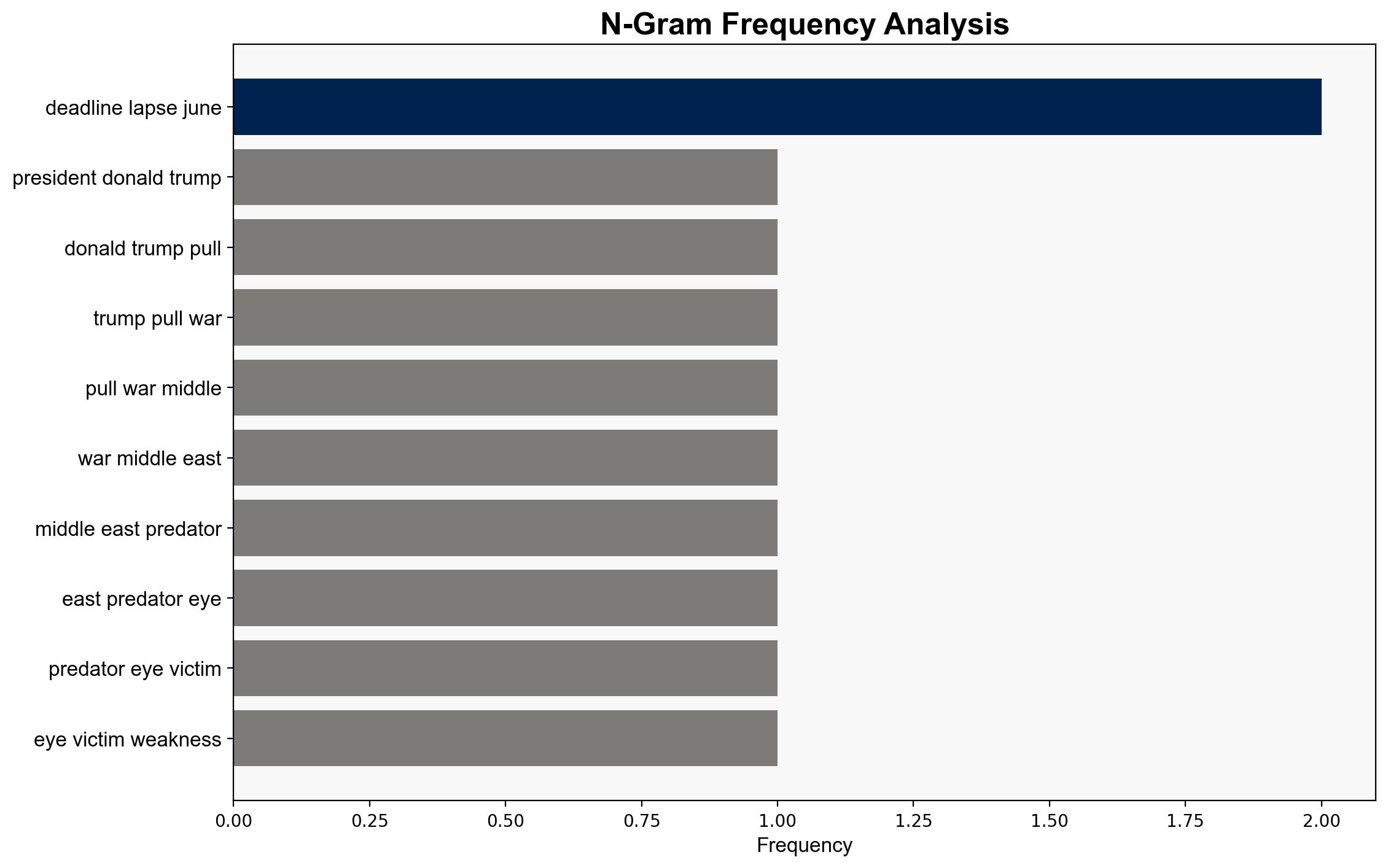How Tehran Might Be Playing Trump – The Atlantic
Published on: 2025-06-21
Intelligence Report: How Tehran Might Be Playing Trump – The Atlantic
1. BLUF (Bottom Line Up Front)
The report examines potential strategies employed by Tehran to influence U.S. policy under Donald Trump, focusing on exploiting perceived weaknesses and strategic indecision. Key findings suggest that Tehran may leverage diplomatic delays and regional alliances to counter U.S. pressure, while the U.S. administration’s internal dynamics could hinder coherent policy execution. Recommendations include enhancing diplomatic engagement and reinforcing regional partnerships to counterbalance Iranian influence.
2. Detailed Analysis
The following structured analytic techniques have been applied to ensure methodological consistency:
Causal Layered Analysis (CLA)
Surface events indicate a pattern of U.S. policy reversals and hesitations, particularly concerning military engagement in the Middle East. Systemic structures reveal a lack of cohesive strategy, with internal U.S. political dynamics affecting decision-making. Worldviews highlight contrasting narratives between U.S. assertiveness and Iranian resilience. Myths suggest a perception of U.S. unpredictability, which Tehran may exploit to its advantage.
Cross-Impact Simulation
Potential ripple effects include increased regional instability if U.S. actions are perceived as inconsistent. Neighboring states may recalibrate alliances, impacting economic and security dependencies. The simulation suggests that Tehran’s strategic patience could lead to shifts in regional power dynamics, particularly if U.S. allies perceive a lack of commitment.
Scenario Generation
Divergent narratives include a scenario where diplomatic engagement leads to de-escalation, contrasted with a scenario of increased military tensions due to miscalculations. A plausible future involves Tehran leveraging its alliances with Russia and other regional actors to counterbalance U.S. influence, potentially leading to a protracted geopolitical standoff.
3. Implications and Strategic Risks
Emerging threats include the potential for Iranian retaliatory actions against U.S. interests, both domestically and abroad. Systemic vulnerabilities are evident in the U.S. administration’s fragmented approach to foreign policy, which may embolden Tehran. Cross-domain risks involve cyber threats and economic disruptions, particularly if regional conflicts escalate.
4. Recommendations and Outlook
- Enhance diplomatic efforts with regional partners to present a united front against potential Iranian aggression.
- Strengthen cybersecurity measures to protect against potential Iranian cyber attacks.
- Scenario-based projections: Best case involves successful diplomatic negotiations reducing tensions; worst case sees escalation into military conflict; most likely scenario involves continued strategic stalemate with periodic diplomatic engagements.
5. Key Individuals and Entities
Donald Trump, Vladimir Putin
6. Thematic Tags
national security threats, cybersecurity, counter-terrorism, regional focus





